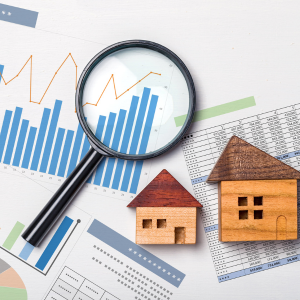
Checklist For Selling A House In Texas
How Can I Enhance My Home’s Curb Appeal?
Curb appeal is key to making a strong first impression on potential buyers. Focus on these home improvements to boost your property’s attractiveness:
- Landscape and Plantings: Keep the front yard neat with fresh plantings. Add colorful flowers or shrubs near the entryway for a welcoming look.
- Exterior Paint: To attract more buyers, choose neutral colors for the exterior. Neutral tones make the house feel fresh and inviting.
- Driveway and Entryway: Clean the driveway and fix any cracks. Place potted plants or simple decorations by the front door to create a friendly entryway.
What Repairs Should I Consider Before Selling My Texas Home?

Before listing your Texas home, tackle key repairs to draw in buyers. Here’s a list of common fixes that can offer good returns:
- Roof and Structural Repairs: Ensure the roof is solid. Fix any leaks or damaged shingles highlighted in a home inspection.
- Bathrooms and Kitchen: Replace outdated fixtures in high-use areas to increase appeal.
- Flooring and Plumbing: Ensure the flooring is in good condition, and the plumbing is free of leaks.
- Electrical Systems: Update old wiring to meet safety standards. This will improve safety and boost buyer confidence.
Is Home Staging Necessary for a Quick Sale?
Home staging can greatly affect your home’s marketability and sale price. Consider these steps:
- Staging Checklist: Collaborate with a realtor to create a staging checklist. Arrange furniture and decor to highlight the home’s best features.
- Interior Design and Professional Staging: Hire a professional stager to optimize each room’s layout and design. This makes the home more appealing to buyers.
- Photography: Use high-quality photos of staged rooms to attract more online interest, which can lead to faster sales.
At Company That Buys Houses, we value these pre-sale preparations to enhance your home’s market value. Following these tips can streamline the selling process and maximize your property’s potential.
Understanding the Real Estate Market in Texas
Are There Specific Market Trends to Watch for in Texas?
The Texas real estate market changes often, and there are several key trends you should watch:
- Seasonal Housing Trends in Texas: The market is busier during spring and summer, which are great times to list properties.
- Market Conditions: Knowing if it’s a buyer’s or seller’s market will help you plan your strategy well.
- Buyer’s Market Trends: If the market favors buyers, sellers must set realistic expectations and adjust their approach.
These trends will help you navigate the Texas real estate scene effectively.
How Does the Texas Housing Market Affect My Sale Strategy?

Adjusting your sales strategy to fit the Texas housing market is important. Consider these strategies:
- Pricing Strategy for Texas Homes: Look at recent sales data to set a competitive price. Pricing too high can lead to a longer time on the market, while pricing too low might mean losing value.
- Negotiating Offers in Texas: Learn common negotiation tactics in Texas. This can give you an advantage when securing good terms.
You can improve your property sale approach by focusing on these local factors.
What are the Key Differences in Urban vs. Rural Property Sales?
When selling property in Texas, it’s key to know the differences between urban and rural markets:
- Urban Housing Market: Cities like Austin, Dallas, and Houston usually have more interest due to amenities and job opportunities, which can mean faster sales.
- Selling Rural Property in Texas: Rural areas might offer bigger lots and peace but may need extra marketing to find the right buyers.
- Texas Urban Housing Market Analysis: Urban markets generally move faster and have higher prices than rural ones.
Understanding these differences helps create a focused marketing plan for urban or rural properties.
Pricing Your Texas Home Effectively
How Do I Determine the Best Listing Price for My Home?
Deciding on the best listing price for your Texas home requires careful thought. A good pricing strategy can significantly affect how well your home sells. Here are key steps to help you set the right price:
- Market Analysis: Start by doing a thorough market analysis to see what’s happening in the real estate market. Check the prices of similar homes sold recently in your area.
- Home Value Consideration: Consider any special features or improvements you’ve made to your home that could increase its value.
- Appraisal: Get a professional appraisal for an unbiased opinion of your home’s worth. They will look at the location, condition, and recent sales of similar homes.
By balancing these factors, you can set a competitive listing price that matches your home’s true market value.
What Role Do Comparative Market Analyses Play in Pricing?

A Comparative Market Analysis (CMA) is crucial in determining the right price for your property. Here’s why:
- Market Trends Evaluation: CMAs show current market trends and help you understand where your home stands among the competition.
- Accurate Property Value Assessment: A CMA provides a clearer picture of your home’s value in the market by comparing your home with similar properties that have sold.
- Real Estate Expert Insight: Working with a knowledgeable realtor is key, as they can use CMA data to recommend a good pricing strategy.
Using CMAs helps you make informed choices, ensuring your home attracts buyers while achieving the best sale price.
Can Professional Appraisals Help Set a Competitive Price?
Yes, professional appraisals are very helpful in setting a competitive price for your Texas home. Here’s how the appraisal process supports your pricing strategy:
- Accurate Appraisals: A licensed appraiser performs a detailed assessment of your home, looking at things like location, size, and condition, and compares it with similar properties.
- Real Estate Transactions: In real estate deals, an appraisal gives a solid point of reference that buyers, sellers, and experts can rely on.
- Pricing Strategy Confirmation: An appraisal checks if your listing price fits the real market value, making it more likely to attract serious buyers.
Professional appraisals are important for ensuring your pricing strategy is based on reliable data, which can increase the appeal of your Texas home in a competitive market.
Company That Buys Houses can guide you through these important steps, helping ensure your home is priced correctly.
Promoting and Advertising Your Home
Which Marketing Strategies Are Most Effective for Selling in Texas?
When marketing a house in Texas, using the right strategy can significantly affect how fast it sells. Here are some effective methods:
- Use Social Media: Platforms like Facebook and Instagram help you reach potential buyers. These platforms allow targeted ads so you can connect with the right people.
- Know the Local Real Estate Market: It is important to understand the real estate market in Texas. Work with local realtors who know the trends and what buyers want.
- Showcase Your Home’s Best Features: Use high-quality photos and descriptions to highlight the best parts of your home. This can make your listing more attractive.
Combining these strategies can improve your marketing efforts and help you sell your home faster.
How Can Online Listings Impact My Home Sale?

Online listings are crucial when selling a home today. Here’s how they can affect your sales:
- Reach More People: Online platforms let you reach many potential buyers, which boosts your home’s visibility and interest.
- Convenience for Buyers: Many buyers start their search online. A good online listing lets them learn about your property anytime without needing a visit immediately.
- Work with a Realtor: An experienced professional can enhance your listings by using professional photos and detailed descriptions, making your home stand out.
Using online platforms can simplify the selling process and attract more interested buyers.
What Are the Benefits of an Open House?
Holding an open house can be a great way to show off your home. Here are some benefits:
- More Exposure: Open houses bring in many potential buyers at once, giving your property more visibility.
- Highlight the Space: Good staging helps show off your home’s strengths, letting visitors imagine themselves living there.
- Get Feedback Quickly: Talking with visitors during the open house gives immediate feedback, helping you learn what buyers like or dislike.
Planning an open house with a realtor’s help can create a friendly atmosphere that encourages buyers to consider your home seriously.
Navigating Offers and Closing the Deal
What Steps Should I Take When I Receive an Offer?
Getting an offer for your property marks a key moment in the real estate transaction process. Here’s how to handle it:
- Review the Offer: Look closely at the buyer’s offer. Check the price, any conditions, and the earnest money deposit.
- Consult with Your Expert: Talk to your realtor about how the offer matches your goals.
- Negotiate Terms: Decide if you want to accept the offer, make counteroffers, or keep negotiating. Pay attention to important contract terms such as price, closing date, and requested concessions.
- Formal Acceptance: After agreeing on terms, sign the purchase and sale agreement to make the contract official.
How Can I Successfully Negotiate with Buyers?

Negotiation is crucial for a good outcome. Here are some tips:
- Stay Informed: Know the current market conditions to use them to your advantage.
- Be Flexible: Be open to negotiation on less important terms to gain concessions on more vital ones.
- Use Clear Communication: Keep communication open with the buyer to ensure both sides understand each other.
- Employ Tactics: Use counteroffers wisely. Suggest different terms or prices to improve the deal.
- Focus on Win-Win Solutions: Aim for a deal that works for both sides, which helps ensure the transaction goes through.
What Should I Expect in the Closing Process?
The closing process involves several steps to transfer ownership officially:
- Title Insurance and Escrow: Ensure the title company provides title insurance for protection against claims. Funds and documents remain in escrow until closing.
- Deed Transfer: The title company prepares the deed to transfer ownership to the buyer.
- Legal Documentation: Review all legal documents, including the settlement statement that lists fees and taxes.
- Final Walkthrough: Let the buyer do a final walkthrough to check the property’s condition.
- Closing Costs: Be ready to pay closing costs, including attorney fees and other administrative expenses.
- Paperwork Completion: Complete and sign all necessary paperwork to finish the deal.
At Company That Buys Houses, we professionally guide you through every step, helping ensure a smooth experience from offer to closing.
Read on to learn more about how to sell a house in Texas. These findings apply all over Texas, including in El Paso, Houston, Dallas, Austin, San Antonio, Fort Worth, and nearby areas. For more help, contact us at (817) 623-5054.


